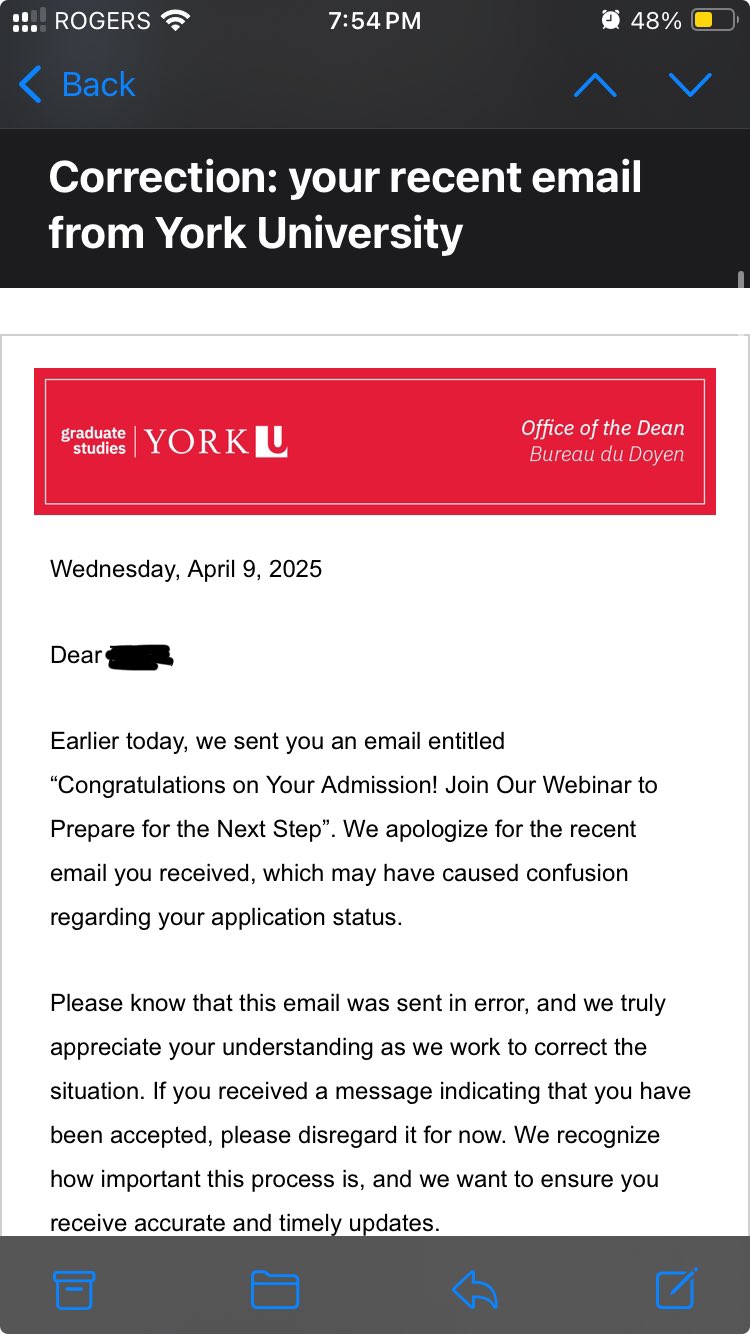Some York University graduate school applicants were left confused and disappointed after receiving an email last week that mistakenly appeared to suggest they had been accepted into their program of choice.
The university confirmed to Global News that nearly half of graduate program applicants who had not yet been accepted were inadvertently sent an email to a webinar intended for those who had already received an acceptance letter.
The mistake sparked frustration online, with several users sharing their experiences on various social media platforms like Reddit and X.
“I had already received an ‘unsuccessful’ update on my portal back in March,” one Reddit user wrote. “It was only until I sent them an email asking for further clarification did they email me back … informing me it was an error. What a horrible feeling I am experiencing right now.”
Another user said they received an email with the subject line, “Congratulations on Your Admission!” only to get a follow-up hours later saying, “We apologize for the recent email which may have caused confusion.”
An original post on X from user @Zhub announcing they’d been accepted to a master’s program, only to find out a couple days later that they hadn’t, has already garnered more than 11 million views.

It read, “Just got accepted into a masters, the air is warmer, the birds are chirping, we made brisket last night, God is good.”
The user later posted a screenshot of the correction email sent by York University.
In an email statement to Global News, Yanni Dagonas, a spokesperson from York University confirmed the error, explaining that “the email message was not an acceptance letter, we understand that it may have caused some confusion to those who received it.”
Dagonas added that a follow-up email was sent shortly afterward, clarifying the error and apologizing for the confusion. The school also provided contact information for any questions. “We regret the unfortunate oversight.”
The university has not confirmed how many students were impacted or which departments were affected.
A similar incident at the same university took place back in 2016 when 500 acceptances were sent to the wrong students.
